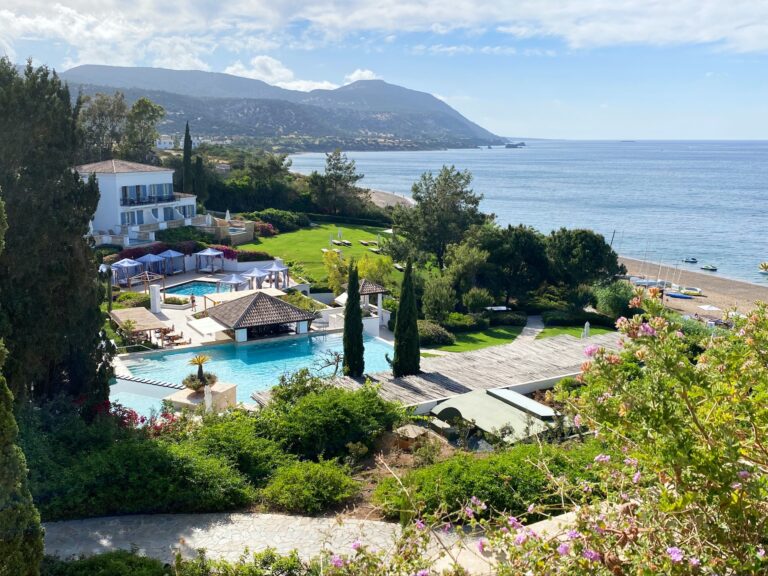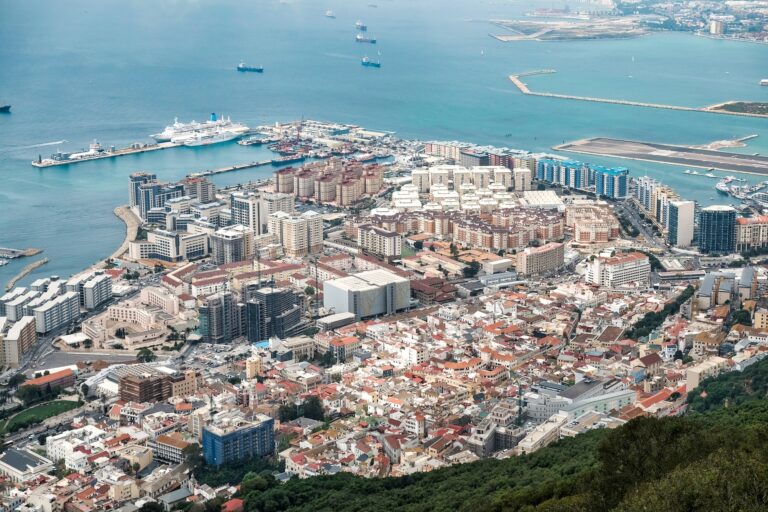When you’re running your own business or freelancing, you must take all of the legal steps necessary to ensure a successful venture. Among those, choosing which country to settle in (or register in) and pay taxes in can have significant implications for both your financial situation and your peace of mind.
Europe is known for attracting entrepreneurs with its good quality of life and growth opportunities – fortunately, there are also multiple countries across the continent that offer competitively low tax rates, making them an attractive option when deciding where to start up or move your company. In this article, we’ll explore some of these countries, including their income tax rates and other benefits they bring along – so keep reading if you’re interested in finding out which countries have Europe’s lowest taxes!
Lowest income tax in Europe - General considerations
One thing to keep in mind about taxes in Europe is that there is direct no zero income tax in Europe. People who are tax efficient combine personal and business expenses to pay the fewest taxes possible.
It is vital to note that tax rules and regulations vary between European nations and even within the same country (e.g., Switzerland). This means that the tactics people adopt to reduce their tax responsibilities may vary depending on where they live.
Special tax breaks or incentives are given in various European nations for particular types of enterprises or people, which can be used to lower the tax burden. Furthermore, some individuals may opt to relocate to nations with lower tax rates to lessen their tax burden.
While lowering taxes is a popular aim for many people and organizations, it’s critical to ensure that any tax tactics used are lawful and comply with local legislation.
Tax evasion and other unlawful behaviors can have significant implications, such as fines and criminal penalties, so treat any residency movement and registration with caution. Always consult an expert.
Table of Contents
1. Cyprus

Cyprus is without a shadow of a doubt one of the lowest income tax countries in Europe due to the special laws the government has passed a few years back.
This EU state member country is an appealing tax destination for both businesses and high-net-worth individuals, and it is extensively used as a domicile for both business operations and family relocation. It’s popular among international entrepreneurs who chose Cyprus’s low-tax country as their tax residence under the non-domicile status.
For special low tax reasons, a new concept of Non-Domiciled individuals was put into law in 2015. The major goal of establishing the Non-Domicile idea is to establish Cyprus as a top destination for people (both EU and non-EU) who want to relocate their personal tax residence to another country. The non-domicile notion provides major tax benefits and is already popular and dynamic.
A Cypriot Tax resident who lives in Cyprus for 60 or 183 days is subject to Cyprus tax on their international income. However, a person who spends more than 183 days on Cyprus territory will be deemed a Cypriot Tax resident, according to this Cyprus statute.
Foreigners who relocate their personal tax residency to Cyprus shall be regarded as non-domiciled in Cyprus for a period of up to 17 years. Non-domicile individuals who
become Cypriot tax residents, they will henceforth be totally excluded from the Special Defence Contribution (SDC) tax.
SDC is often applied to dividends and interest. Because SDC tax does not apply to Cypriot tax residents who are not domiciled in Cyprus, dividends and interest received by such entities are now totally tax-free in Cyprus.
Normally, the primary sources of income for high-net-worth individuals is typically dividends and interest. Additionally, regardless of domicile, foreigners who become Cypriot tax residents receive a slew of other major tax benefits, the most important of which are mentioned below.
What is a non-domiciled person in Cyprus?
Generally, there are two types of domicile: domicile of origin, which is the domicile received at birth, and domicile of choice, which is the domicile acquired by establishing a physical presence in a particular place and demonstrating intent to make it the place of permanent residence.
Those who have been tax residents in Cyprus for at least 17 of the past 20 years preceding the tax year in issue shall be regarded as domiciled in Cyprus for the SDC Law, regardless of their domicile of origin or choice.
Persons with a domicile of origin in Cyprus will be considered non-domiciled in the following circumstances:
- If they have acquired and maintained a domicile of choice outside Cyprus, provided that they were not tax residents in Cyprus for any continuous period of at least 20 consecutive years before the tax year in question; OR
- If they were not tax residents in Cyprus for at least 20 consecutive years (i.e. from Cyprus or from abroad). SDC tax applies limited to persons who are both Cypriot tax residents and domiciled in Cyprus.
Tax residents in Cyprus who receive dividends and bank deposit interest are liable to SDC tax at the rates of 17% and 30%, respectively, under the rules of the Cyprus SDC Law, regardless of the source of the income (i.e., from Cyprus or from abroad). Those who are both Cypriot tax residents and domiciled in Cyprus are exempt from SDC tax.
Therefore, non-domiciled tax residents will be tax-free on any dividends and interest earned in Cyprus. Dividend income has been subject to GeSY payments since March 1, 2019, (at a rate of about 1.7% with a maximum yearly income of EUR180,000.)
Other tax low-income tax benefits you will get in Cyprus
- Earnings from the sale of shares and other qualifying titles are particularly free from Cyprus taxation, as long as the underlying assets do not involve immovable property in Cyprus.
- The first €19,500 of taxable income is tax-free. Any taxable income beyond this threshold is taxed at progressive rates ranging from 20% to 35% (for earnings exceeding €60,000).
- A 50% exemption for payment from employment performed in Cyprus by people who were not residents of Cyprus prior to the start of their employment. If the annual income exceeds €100,000, the exemption is valid for ten years, beginning with the year of employment.
Cyprus is a country in Europe that clearly offers a lot of tax benefits for people who want to move their residency there. However, it can be really complicated to navigate your personal and company tax situations, so we strongly recommend you consult a tax expert or international lawyer.
Allow us to develop a comprehensive offshore plan tailored to your needs
Our team of experts can assist you in legally minimizing your offshore tax rate, safeguarding your assets, exploring overseas investment opportunities, and obtaining a secondary citizenship. We have already assisted hundreds of individuals in accomplishing these goals.
A few reasons to relocate to Cyprus
2. Malta

Malta offers some of the lowest income taxes in Europe through its two programs for foreigners.
The Global Residence Programme and the Residence Programme. The Residency Programme (TRP) and Global Residence Programme (GRP) are almost equivalent.
The Global Residency Program (GRP) is intended to attract rich persons from outside the European Union, Switzerland, or the European Economic Area who wish to establish tax residency in Malta.
Successful applicants who are also tax residents in Malta are subject to Maltese income tax only on a source-and-remittance basis.
Maltese-source income and capital gains are taxed at 35%, whereas foreign-source income earned in Malta is taxed at a flat rate of 15%, with the option of claiming double tax relief. There is a €15,000 minimum yearly tax levy.
Non-Maltese-sourced income generated outside of Malta is not subject to Maltese income tax.
There is no tax on capital gains derived from sources elsewhere than Malta. The income made in Malta and capital gains realised in Malta would be taxable in Malta at the higher rate of 35%.
Applicants will be entitled to the relief of double taxation otherwise suffered on income arising outside Malta.
a) Global Residence Programme (GRP) Requirements
- Firstly, applicants who wish to apply for the GRP must not be receiving benefits from any other tax programmes, including the Residents Scheme Regulations, High Net Worth Individuals Rules, Malta Retirement Programme Rules, United Nations Pensions Programme Rules, Qualifying Employment in Innovation and Creativity Rules, or Highly Qualified Person Rules.
- The applicant and his or her dependants must be represented by an Authorised Registered Mandatory (ARM) who will advise and process the application for the Global Residence Programme.
- The person must also possess a valid travel document, health insurance that addresses all risks Maltese nationals are normally covered by, can communicate in one of the official languages of Malta, and is a fit person.
- Applicants will need to hold a purchased property in Malta for a minimum of €220,000 if located in Gozo or South of Malta or € 275,000 if located in other parts of Malta.
- OR
- rent a property for a minimum of €8,750 if located in Gozo or the south of Malta or €9,600 if located in other parts of Malta for no less than 12 months.
- The applicant must also pay a a non-refundable Application fee of €5,500 if the property is in Gozo or the South of Malta; or €6,000 fee if situated in other parts of Malta, if applying for the Global Residence Programme.
b) The Residency Programme (TRP)
The Malta Residency Programme (TRP) intends to attract private clients and high-net-worth families from the EU, EEA, or Switzerland who want to obtain tax residence in Malta.
Non-EU nationals may apply under the Global Residence Program.The Residence Program (TRP) Rules were introduced in June 2014. Nationals from outside the EU, for example, cannot apply for the Residence Programme and must instead follow the “Global Residence Programme” guidelines we discussed above.
Just like in the case of the GRP type of residency, with the TRP, the applicant and his family must be represented by an authorized registered mandatory (ARM) who will counsel, process, and help the client throughout the procedure.
A crucial requirement to qualify for this program is to hold eligible property in Malta that meets the following criteria:
- Either owning a property for at least €220,000 in Gozo or the south of Malta, or €275,000 in Malta.
OR
- Property rental for a minimum of €8,750 in Gozo or the south of Malta, or €9,600 in Malta.
When the application is filed, applicants must pay an application fee of €5,500 if the property is located in Gozo or the south of Malta, or €6,000 if the property is located in Malta.
In addition, all applicants must pass a “due diligence” exam, have health insurance, and submit all necessary documents and papers.
It’s worth mentioning that residence in Malta and its tax benefits (e.g., low tax) can be extended to the dependents of the applicant. For example, you can include the spouse or de facto partner of the main applicant, children under 18 years old (including adopted children and those in the care of the main applicant), and children over 18 but under 25 who are not economically active or who are unable to support themselves due to illness or disability.
Dependent siblings and relatives in the ascending line of the main applicant or their partner can also be included.
Please note that a yearly minimum tax of €15,000 is due. Candidates are not permitted to spend more than 183 days per year in any other country. You can read all the news about the low tax TRP program on the government’s official website here.
A few reasons to relocate to Malta
Malta is a good place to live overall. As a country, Malta provides an appealing and energetic lifestyle on a sunny Mediterranean island with lovely weather and a crystal-clear sea. The island has three UNESCO World Heritage Sites and is usually considered the world’s second-best diving destination.
Furthermore, Malta has exceptional political stability and is a member of the Schengen Area, which allows for easy mobility among all 26 member nations. The World Health Organization ranks Malta sixth out of over 100 nations for its excellent public and private healthcare (WHO). In addition, Malta offers investment opportunities, notably in the real estate industry, and it has a rising economy.
Another great thing about Malta is that English is the national language, and the majority of the population speaks it fluently, making it simple for visitors and locals alike.
3. Portugal

Portugal has become one of the lowest-tax countries in Europe since 2009, when the Portuguese government created a tax framework called the “resident-non-habitual” status, also known as the NHR. This is a tax scheme that provides a 20% tax rate or a complete exemption from income taxation for expats who opt to live in Portugal for a term of ten years.
This status makes Portugal one of the lowest-tax countries in Europe. Here is a comprehensive list of benefits that you’ll get in this low-tax country if you get NHR status:
- Tax residency in white-listed EU country
- Special tax treatment for ten years,.
- Exemption on all foreign income
- No wealth tax
- Free remittance of funds to Portugal
- 20 percent flat tax exemption rate on some Portuguese income
- Tax exemption on gifts for family members
- No minimum stay requirement
One important note about the low tax NHR status in Portugal is that there is an important link between Portugal’s Double-Taxation Agreements and this NHR resident tax policy.
DTAs allow most types of income to be taxed in the country where they are earned. Most governments, however, opt not to tax any income made by non-residents in order to be perceived as open to international investment.
In turn, because the income may be taxed elsewhere, Portugal will not tax most foreign-source income obtained by NHR people under the NHR tax structure. This permits NHR residents to receive overseas income tax-free.
Portugal presently has double-taxation agreements with 79 countries, and in the absence of a DTA, the OECD model tax convention may be used.
Allow us to develop a comprehensive offshore plan tailored to your needs
Our team of experts can assist you in legally minimizing your offshore tax rate, safeguarding your assets, exploring overseas investment opportunities, and obtaining a secondary citizenship. We have already assisted hundreds of individuals in accomplishing these goals.
What is required to apply for the low tax non-habitual resident (NHR) tax regime in Portugal, Europe?
Applicants must meet the following qualifications to be eligible for the NHR program:
1. Possess the right to reside in Portugal, either as an EU/EEA/Swiss citizen or through programmes such as the Golden Visa programme.
AND
2. must not have been a Portuguese tax resident in the five years before your move to Portugal.
To keep their resident status in Portugal, they must:
Have a place of residence in Portugal on December 31, that year. This home must be made available in a way that suggests a desire to preserve and inhabit it as a habitual residence.
Portugal also has multiple visas for foreign entrepreneurs, artists, students, or expats who want to relocate to the Mediterranean country. Some of this, like the D7 “Passive Income Visa” or D8 “Digital Nomad Visa” could also be good options for you to reduce your tax footprint in Europe.
Here is a summary of all the visa types available for Portugal in 2023.
- Passive income visa (D7): This visa is for those who can prove they have a steady passive income source and are willing to invest in Portuguese real estate.
- Entrepreneur visa: This visa is for those who wish to start a business in Portugal and create jobs.
- Highly qualified professional visa: This visa is for those who have a high level of education or professional experience and are seeking employment in Portugal.
- Research visa: This visa is for those who are coming to Portugal to conduct research at a university or other research institution.
- Study visa: This visa is for those who are coming to Portugal to study at a university or other educational institution.
- Family reunification visa: This visa is for family members of Portuguese citizens or permanent residents who wish to join them in Portugal.
- Golden visa: This visa is for those who are willing to invest in Portuguese real estate, capital, or businesses.
- Retirement visa: This visa is for those who are retired and can prove they have sufficient financial means to support themselves in Portugal.
- Artist visa: This visa is for those who are coming to Portugal to work in the arts, such as musicians, writers, or actors.
You can find more information on every single one of them, click here
A few reasons to relocate to Portugal
Overall, Portugal is an excellent place to live for individuals who value a high standard of living, a low cost of living, safety, decent healthcare, education, and accessibility. Portugal is becoming an increasingly popular destination for expats and retirees searching for a new place to call home, thanks to its great climate, gorgeous landscape, and hospitable culture.
Portugal is an excellent place to live for a variety of reasons. First and foremost, it provides an unrivaled standard of living. The country boasts a lovely environment, with moderate winters and balmy summers, making it a perfect location for sunbathers and outdoor enthusiasts. Portugal is also noted for its breathtaking beauty, which ranges from the Algarve beaches to the undulating hills of the Douro Valley.
Another element that contributes to Portugal’s attractiveness as a location to reside is the low cost of living. Portugal is relatively affordable in comparison to other Western European nations, making it an appealing option for individuals seeking a good quality of life without breaking the bank.
Another key factor to consider when moving to a new country is safety, and Portugal is one of the safest in Europe. The crime rate is low, and the political climate is stable and tranquil, giving its people a sense of security and stability that many other nations lack.
4. Greece

Even though Greece is known as a country with high taxes in Europe, what a lot of people don’t know is that Greece also has two especially appealing special tax regimes.
The Non-Dom Regime for Investors and the Non-Dom Regime for “Retirees” are two good options that any person who wants to pay low taxes in Europe should consider.
a) The Non-Dom Regime for Investors
This low tax program is tailored for individuals who invest €500,000 in Greek assets and pay a flat sum tax of €100,000 per year, regardless of their income or wealth, under the Greek Non-Dom Regime. The majority of popular asset types are available, and individuals may invest through a corporation.
The €500,000 minimum investment can be divided into up to three distinct investments, and the applicant can complete the investment(s) up to three years after submitting the original application.
It is extendable to family members, who can also benefit from the system by paying an extra tax of €20,000 per adult family member each tax year.
Foreign-sourced income and assets kept overseas are completely free from taxes under this plan.
The maximum duration of this status is 15 years and to qualify you’ll need:
- 7 out of the last 8 years of non-tax residence in Greece.
- Show that they, their immediate family members, or a legal company in which they own the majority of the shares have invested at least €500,000 in real estate, enterprises, transferrable securities, or shares of Greek legal organisations.
What type of income will be less taxed under this programme?
Any and all foreign-sourced income is free from taxes under the Non-Dom plan, however, money received in Greece is subject to ordinary Greek tax rates.
Non-dom regime tax residents in Greece are not permitted to use income tax paid abroad to decrease their tax burden in Greece.
For example, a taxpayer residing in Greece under the non-dom regime cannot lower his or her €100,000 Greek tax burden by demonstrating payment of withholding tax on the same income in another country.
Individuals who have selected the non-dom status and earn taxable income in Greece will be taxed in accordance with the basic requirements of the Greek tax code.
b) The Non-Dom Regime for Investors
The regime is open to both Greeks and foreigners. With a maximum duration of 15 years
The Greek Non-Dom Regime for “Retirees” Status ( passive income needed, not just your regular pension) imposes a 7% flat tax on pensions and other foreign-source income like dividends, interest, and capital gains.
This status does not extend to family members. If the individual has already paid tax on his or her foreign income in another country, they are eligible to request tax credits and deductions against Greece’s 7%.
Eligibility requirements
- To qualify for the 7% flat tax, an applicant must have a foreign pension or pension-like income. These may include payments from public or private retirement plans, as well as dividends, interest, annuities, capital gains, and so on.
- Not have been regarded as a tax resident of Greece for 5 of the preceding 6 years prior to changing tax residence to Greece;
- Transfer from a nation with which Greece has an active tax administrative cooperation agreement or double taxation avoidance pact.
In case you are looking to relocate short term as a digital nomad or remote worker, Greece also offers a digital nomad visa for 1 year with the possibility to extend it. You will need to earn a minimum of 3,500 EUR per month. This is available only to non-EU citizens. Get all the details in this comprehensive post on our website about the Digital Nomad Visa for Greece.
5. Gibraltar

Gibraltar is a British Overseas Territory located at the southernmost tip of the Iberian Peninsula, home to over 33,000 people. This territory too is considered a low-tax place in Europe as we’ll see below.
One fantastic thing about Gibraltar is that its Constitution Order 2006 governs Gibraltar’s modern and sophisticated constitutional relationship with the United Kingdom, with the result that Gibraltar has full fiscal and political autonomy from the UK, save for the three powers reserved for the Governor as Her Majesty the Queen’s representative.
Tax Residency in Gibraltar
Let’s first define what a Gibraltar resident is. In general, you are a tax resident of Gibraltar if you are present in Gibraltar for at least 183 days in aggregate in any year of assessment or for more than 300 days in three consecutive years. (regardless of you being an individual is domiciled in Gibraltar or not)
Non-resident refers to anybody who is not a regular resident.
There are several possibilities for obtaining tax residence in Gibraltar, including taking up work, establishing a business, or settling in Gibraltar. We discuss below some of these options:
1. ‘HEPSS’ individual - High Executive Possessing Specialist Skills
The HEPSS status was established to attract talent and top executives to Gibraltar. The HEPSS regime requires the Finance Centre Director to be satisfied that the appointment of a HEPSS will ‘promote and sustain the economic activity of a particular economic value to Gibraltar and that he/she will earn more than £160,000.
Companies with HEPSS qualifying employees have the benefit of a two year transitional period whereby existing certificates are grandfathered for two years, allowing for changes to conditions to be negotiated and implemented.
2. Setting up a company in Gibraltar
Corporate tax in Gibraltar is imposed at a rate of 12.5%; this, together with the benefits of conducting business in an efficient and contemporary jurisdiction, is a good incentive for entrepreneurs from across the world, particularly in the online gaming and financial services areas. Both of these sectors are extremely popular in Gibraltar.
3. Cat 2 status - For High Net Worth Individual
HNWIs interested in relocating to Gibraltar can take advantage of the provisions of the Qualifying (Category 2) Individuals Rules 2004 and apply for what is known as CAT 2 status, or Gibraltar category 2 tax residency.
This is tax residency status allows the qualifying individual to limit the amount of tax payable on worldwide income to a maximum of £118,000 of assessable income, subject to a minimum of £37,000 income tax falling due for each qualifying year. If you want to learn more about the Cat 2 status, you can do so here.
4. High Net Worth Individual and Trusts
Because Gibraltar range of legal and structural benefits characteristic of an English common law jurisdiction, a lot of HNWIs and their families can take advantage of this system.
The availability of sophisticated specialised financial center solutions for asset protection like Gibraltar’s Protected Cell Corporation and the capacity to set up a purpose Trust, is also something that is appealing to these types of wealthy people.
5. The self-sufficiency Status
Because no tax is owed in Gibraltar on a wide range of income, it is feasible to register for residency on the basis of “self-sufficiency.” If a retiree is over 60 and receiving pension income from a pension approved by the Commissioner of Income Tax in Gibraltar, no tax is payable on such a pension. Furthermore, there is no tax payable by anybody on inheritance, capital gains, wealth, or VAT, and, as passive income, no tax on savings interest, dividends, or income from publicly traded firms.
However, from July 2022, non-Gibraltar nationals resident in Gibraltar, not in possession of a CAT 2 or HEPSS certificate or who are in ‘true third party employment’ would pay tax on all savings, pensions, and other passive income.
A few reasons to relocate to Gibraltar
Gibraltar is a stable place and was ranked fourth in the world by the International Monetary Fund (IMF) in terms of GDP per capita, signifying an affluent nation with promising economic prospects.
Gibraltar has a subtropical climate with over 300 days of sunlight each year and moderate winters, which make living there really pleasant.









